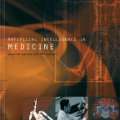Efficient data offloading plays a pivotal role in computational-intensive platforms as data rate over wireless channels is fundamentally limited. On top of that, high mobility adds an extra burden in vehicular edge networks (VENs), bolstering the desire for efficient user-centric solutions. Therefore, unlike the legacy inflexible network-centric approach, this paper exploits a software-defined flexible, open, and programmable networking platform for an efficient user-centric, fast, reliable, and deadline-constrained offloading solution in VENs. In the proposed model, each active vehicle user (VU) is served from multiple low-powered access points (APs) by creating a noble virtual cell (VC). A joint node association, power allocation, and distributed resource allocation problem is formulated. As centralized learning is not practical in many real-world problems, following the distributed nature of autonomous VUs, each VU is considered an edge learning agent. To that end, considering practical location-aware node associations, a joint radio and power resource allocation non-cooperative stochastic game is formulated. Leveraging reinforcement learning's (RL) efficacy, a multi-agent RL (MARL) solution is proposed where the edge learners aim to learn the Nash equilibrium (NE) strategies to solve the game efficiently. Besides, real-world map data, with a practical microscopic mobility model, are used for the simulation. Results suggest that the proposed user-centric approach can deliver remarkable performances in VENs. Moreover, the proposed MARL solution delivers near-optimal performances with approximately 3% collision probabilities in case of distributed random access in the uplink.
翻译:高效数据卸载在计算密集平台中发挥着关键作用,因为无线频道的数据率根本有限。 此外,高流动性增加了车辆边缘网络的额外负担,增强了高效用户中心解决方案的愿望。因此,与遗留的不灵活网络中心办法不同,本文利用了一个软件定义的灵活、开放和可编程的网络平台,以建立一个高效的用户中心、快速、可靠和受截止日期限制的无线频道数据卸载解决方案。在拟议的模型中,每个活动车辆用户(VU)都从多个低动力接入点(APs)服务于多个低能访问点(APs),为此创建了一个高贵的虚拟单元格(VC) 联合节点关联、电力配置和分布式资源分配问题。由于中央学习在许多现实世界问题中并不可行,在自主 VUs 的分布性质分散之后,每个VU都被视为一个边缘学习剂。为此,考虑到实际的定位和偏心型节点连接,一个联合的无线电和电力资源配置非同步游戏,通过创建多功能访问点访问点访问点点(RL) 将真实的学习工具升级到游戏的游戏工具升级的功能,因此,在游戏中可以使用。



